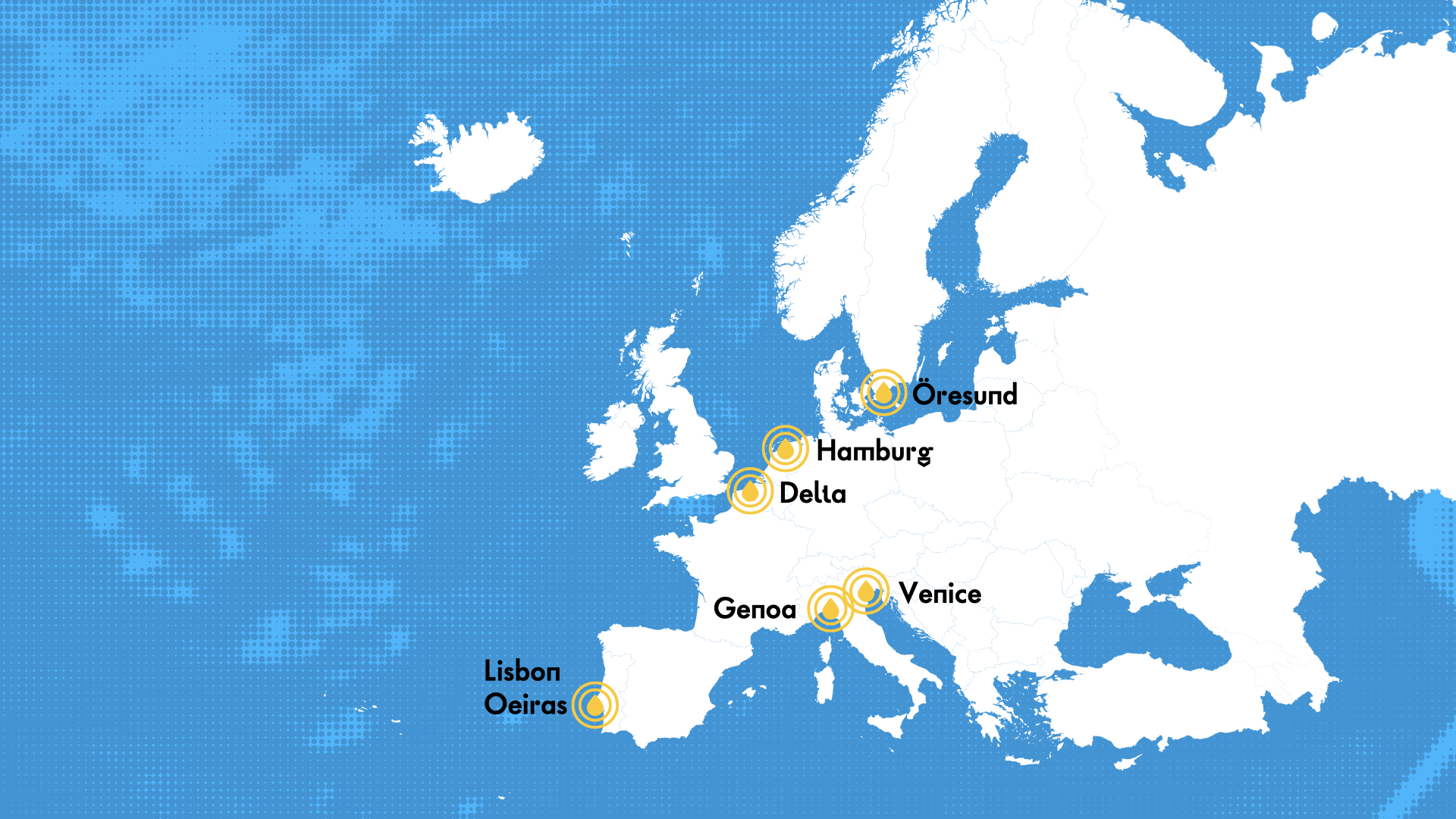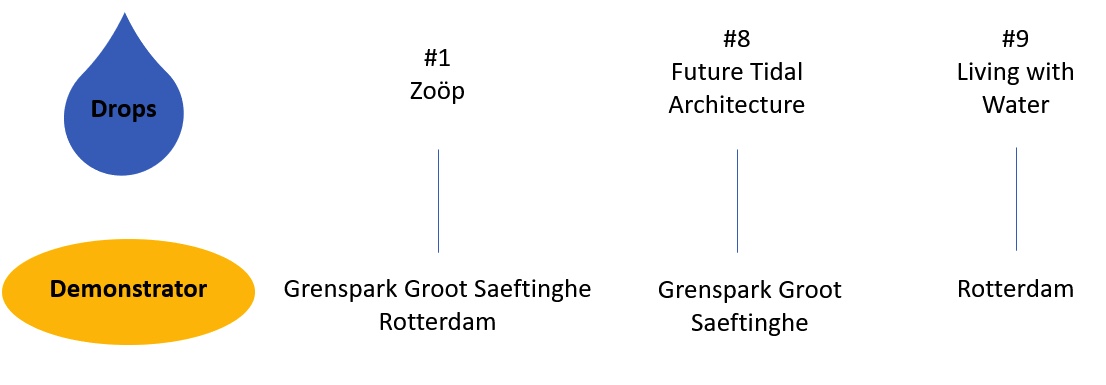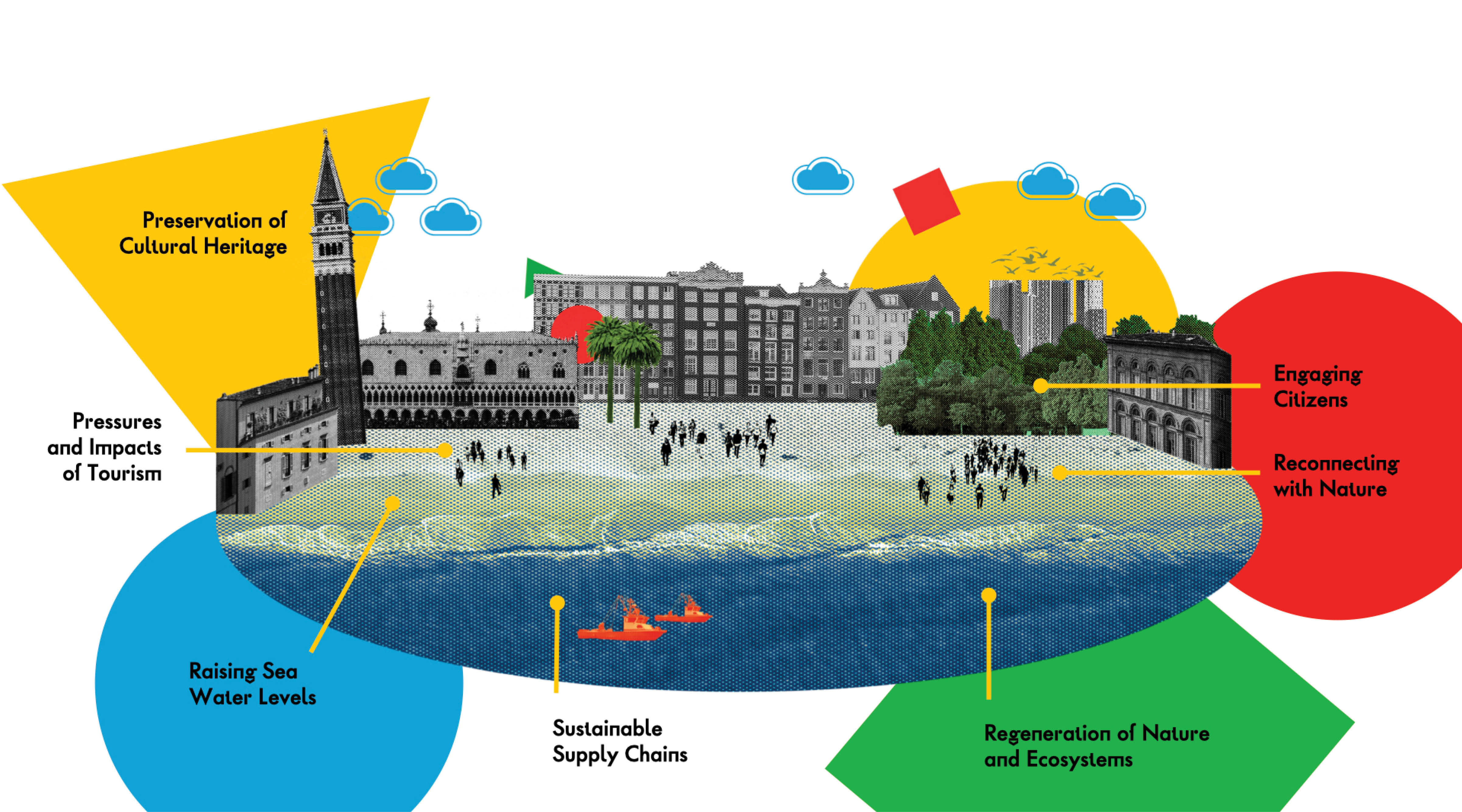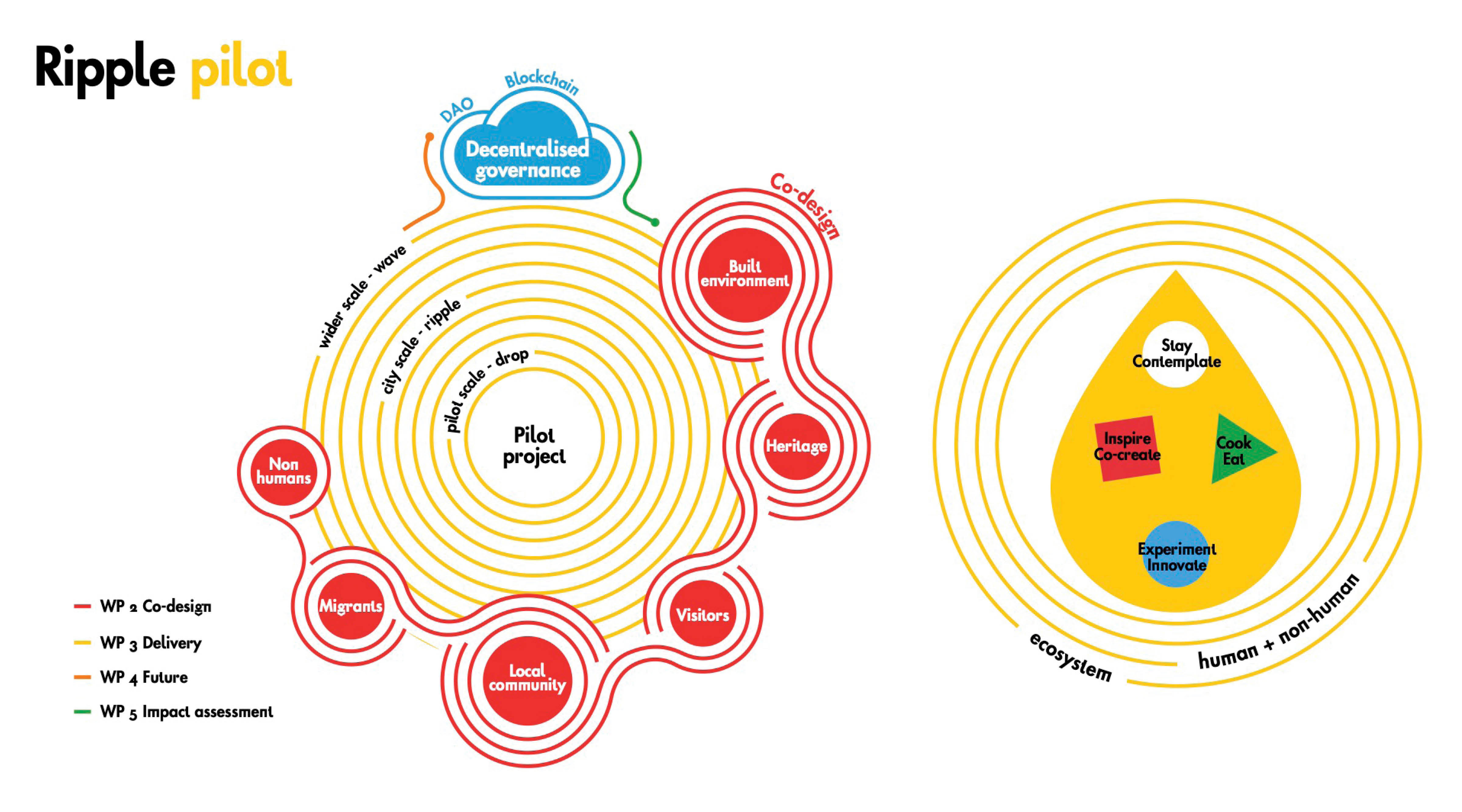Mobilisation around the sea
Bauhaus of the Seas Sails
Bauhaus of the Seas Sails (BoSS) is a project supported by the European Union. The project focuses on developing a process in which areas achieve a sustainable transition, with attention to aesthetics and cooperation with local communities. The BoSS project aims to demonstrate and archive solutions for climate neutrality, focusing on dealing with water, seas, and rivers.
Seven demonstration projects (pilots) are part of BoSS. Each demonstration project is located in a different region in Europe and has a different characteristic water ecosystem. For example, the city of Lisbon in Portugal is located near an estuary, Venice is located near a lagoon, and in Belgium and the Netherlands, we speak of the Scheldt Delta. In each pilot, innovative solutions are worked on for climate-related challenges, with a lot of attention to the process.
EGTS is part of the Delta pilot team with Grenspark Groot Saeftinghe. Partners within the Delta are TU Delft, Nieuwe Instituut, and Vereniging Deltametropool.
 BoSS outreach | bauhaus-seas.eu.
BoSS outreach | bauhaus-seas.eu.
Delta as a pilot between Saeftinghe and Rotterdam
Delta comprises two distinct locations: Saeftinghe, representing a rural landscape, and the Rotterdam area, embodying urban characteristics. It is further characterized by the combination of three drops Zoöp , Future Tidal Architecture , and Living with Water ; and one overarching work package (WP5 – Impact Assessment), all operating concurrently within the pilot areas of Saeftinghe and Rotterdam.
The Rhine-Meuse-Scheldt Delta, situated in the Netherlands and Belgium, is the result of the merging of the Rhine, Meuse, and Scheldt rivers. The cross-border expansion spanning both the Netherlands and Belgium, elevates the significance of this pilot project within the broader context of land-sea interactions.
 BoSS drops.
BoSS drops.
Drop 1 – Zoop
Nieuwe Instituut already is a Zoöp and serves as a case study and testing ground for the future BoSS and other Zoöps. GGS (Grenspark Groot Saeftinghe) is interested in developing their visitors center and its activities as Zoöp, together with four local partners.
Drop 8 – Future Tidal Architecture
Future Tidal Architecture is primarily focused on developing various scenarios that offer solutions to rising sea levels and the changing rainfall pattern together with the regional owners of the border park. Within this drop, there are a variety of tools that will be explored:
- Learning from citizens
- Engaging the experts
- Student Engagement
Drop 9 – Living with Water
This drop will be formed by the Living with Water track of the Curriculum that The New Academy is developing for and with the city and citizens of Rotterdam. The New Academy develops a Curriculum based on the concept of the ‘distributed university’. This assumes that knowledge is produced in a variety of locations and through many different subjects.
WP5 – Geospatial Platform for Impact Assessment
The main objective of Work Package 5 (Impact Assessment) is to develop a geospatial platform that enables mapping of heterogeneous spatial, socioeconomic, and cultural data integrating narratives for and from the pilots. Through its tools and functionality, the platform seeks to create a connection between science, technology, education, art, and culture, based on the ideals of the New European Bauhaus (NEB), involving a diverse range of communities, users, and partners.

